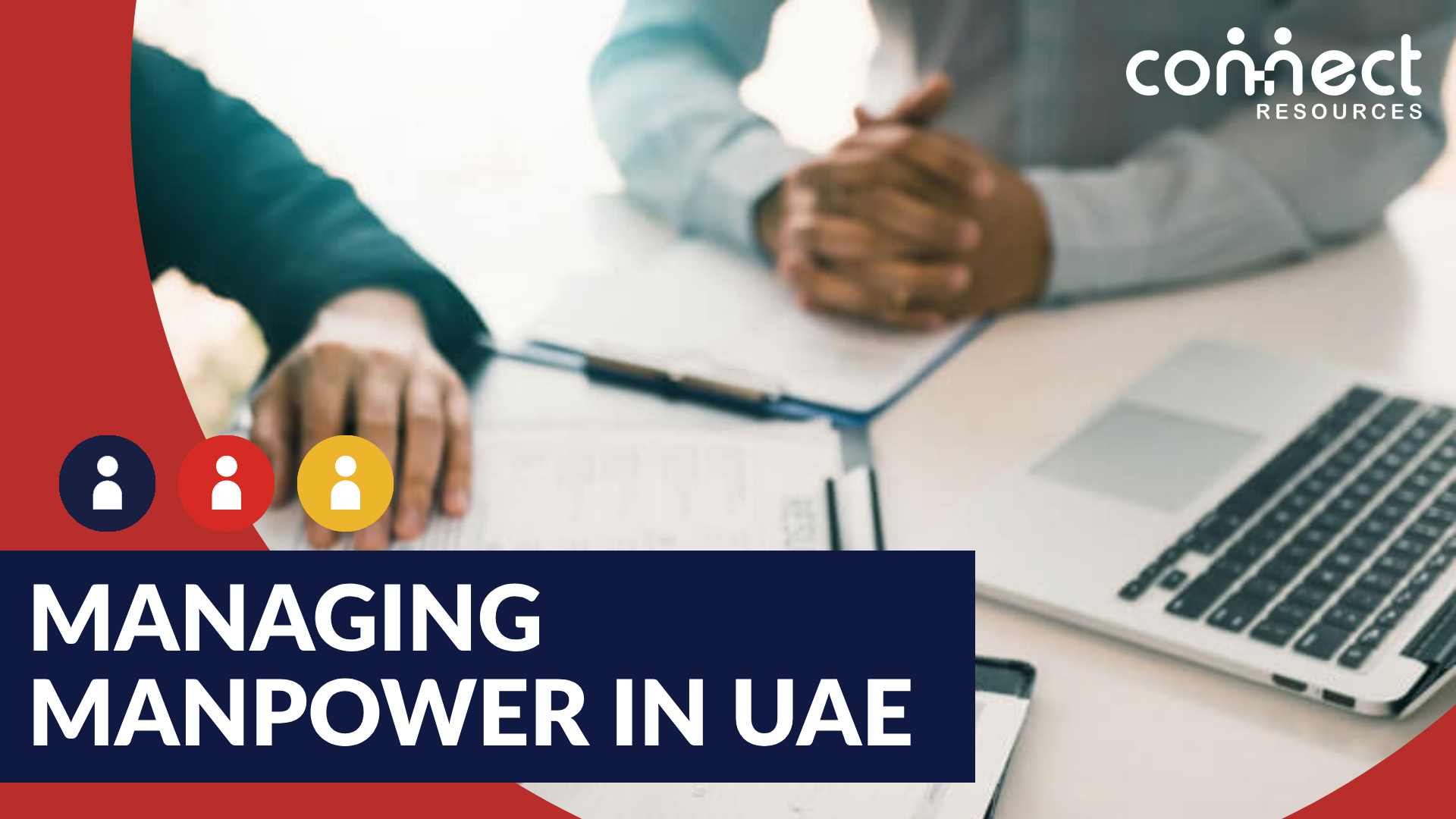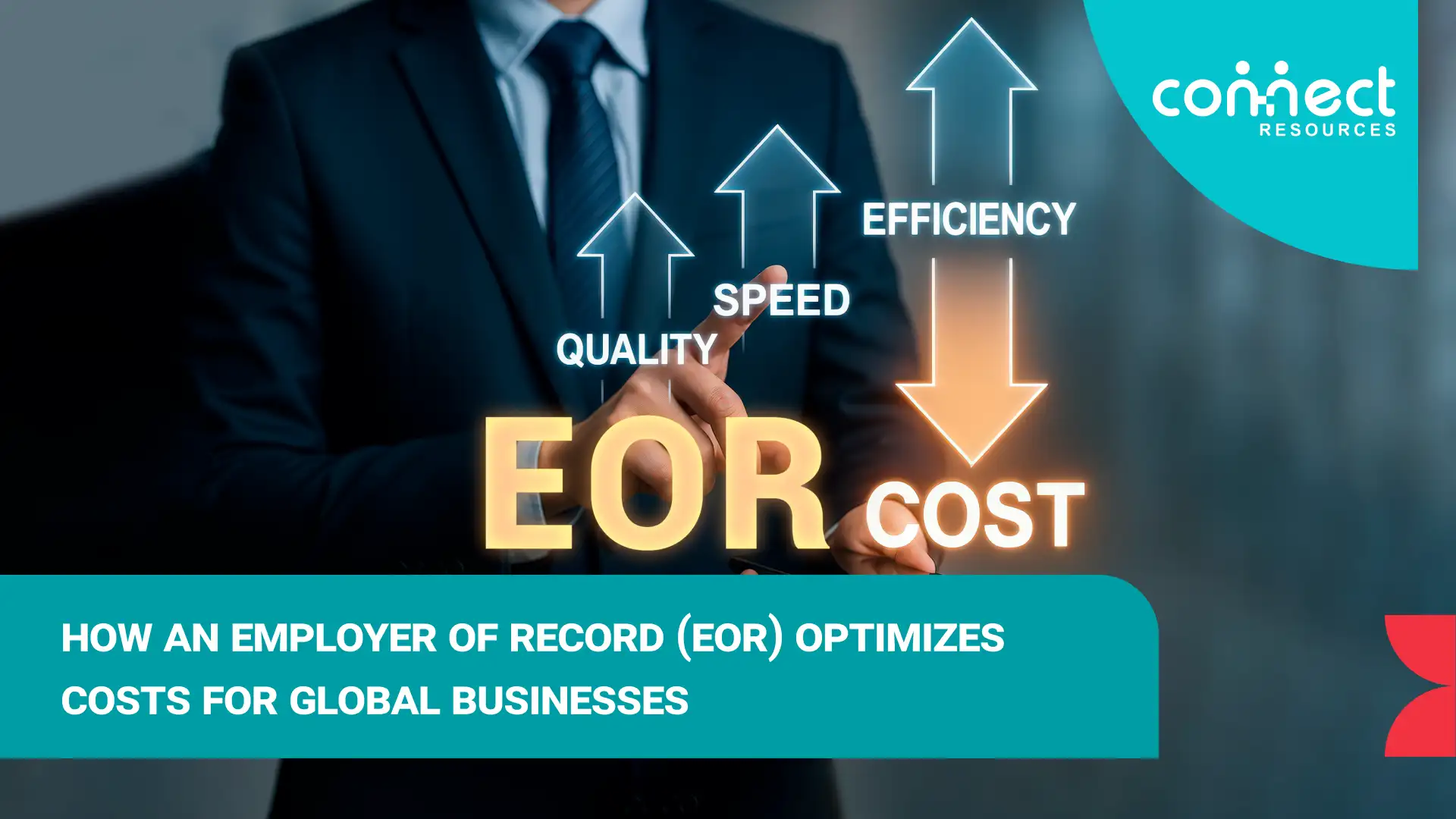Dubai’s years of economic prosperity have attracted companies and financiers from all over the world. As a result, skilled labor is in high demand in a wide range of industries, including building, medicine, tourism, and others. As a result, most businesses demand the services of manpower in UAE.
In this article, we will be talking about the opportunities and challenges of dealing with manpower in UAE. A competitive market makes it tough for organizations to stand out, employees are quitting later, a younger, wider workforce has distinct desires and ambitions, and the digital age is expanding methods of engaging with people. So, HR management has been varying with time.
Labor Laws and Regulations impacting Manpower practices
Foreign nationals must have a valid work visa and authorization in order to work legally in the UAE. For expats holding work visas, the UAE is not asking for any further visas. With a work visa, you have the right to stay in the country for a specific amount of time. One of the most important things to grasp about working in the UAE is that the company provides the work permit or visa. You cannot individually apply for such permissions or licenses while working as an employee.
The MOHRE supplies the necessary work permits in Dubai. These work permits are available with employers, who then convert them into legitimate residence visas. Once they obtain a residence visa, a work pass allows employees to enter the UAE and carry out their jobs there. This permit is legitimate for two months. During this time, employers will need to make arrangements for things like a physical test, a labor card, Emirates ID and a permit to reside.
Foreign nationals must acquire a UAE work visa before heading to the UAE to work. For the UAE, foreign nationals may apply for Golden Visas, regular work visas, and other types of employment visas. Depending on the unique circumstances of each application, a different visa may be the best option.
With the aid of a work visa, also known as a regular work visa in the UAE, an expat may reside and conduct business there for 2 to 3 years. The business then has to decide whether to renew or terminate the visa. One of the most popular options for employment in the UAE is a standard work visa. It needs an official contract of employment and MOHRE approval.
Employee Contracts: terms, termination, & probation
A written agreement that both the employer and the employee must sign is known as a labor contract in the United Arab Emirates. Once the two parties sign it, the hiring contract UAE is binding. The nature and scope of an employee’s job appear in their employment agreement. It frequently also includes timelines, schedules, and job goals.
Written employment agreements are legally binding for both the employer and the employee. Companies must pay any salaries and benefits that are missing, in conformity with the terms of the contract.
The most common types of contracts for manpower in UAE are:
- Short-term contract: If a company has to hire people in the UAE for a specific set of responsibilities, a short-term labor contract is the best option. It is significant to highlight that the duration of the jobs is specific. Limited term contracts frequently have no notice clauses. They thus simply expire once the prerequisites have been met or on the date they are due. Unless one of the parties ends it earlier. In the UAE, a probationary term is obligatory for all new hires. Employers or employees can terminate the contract in case the other party is not meeting the proper conditions. Likewise, they can extend it if they both agree.
- Long-term contracts: Contracts with an indefinite length are often more flexible and logical than those with a short-term period. As a result, in the UAE, contracts with indefinite length dominate those with limited terms. It can be applied for long-term workers. According to UAE Labor Law, an indefinite length agreement has no restrictions and may be ended for any number of causes.
The duration of the probationary term may be between three and six months, according to the company’s particular policies.
Wage regulations and minimum salary standards
When it is about work, manpower in UAE want to be appropriately compensated for their training and expertise. Even while some job duties may pay higher salaries than others, careers that lack a lot of ability may pay less.
No matter what, the manpower Dubai must be paid on time and in line with their credentials. The lowest legal amount that an employee must be paid for their services is known as a minimum salary or wage, and it varies depending on the country. This means that if an employer pays a staff member less than the legal minimum wage, they are breaking the law.
It is very important to remember that there is not a minimum wage in the UAE. Additionally, it is critical to remember that the minimum pay and the basic salary are not the same.
The worker receives the basic pay in the UAE, as specified in the contract. Prior to any benefits, expenses, or other remuneration, the basic pay is paid. It is therefore the payment the employer makes to a worker for fulfilling their contractual obligations.
The new UAE Labor Law stipulates that the base salary must be specified in the employment contract. Moreover, because it does not include any other in-kind benefits or allowances, this income is often known as basic compensation.
UAE workers also earn allowances in addition to their salaries. Among them are a phone, lodging, communication, allowance for travel, and other privileges.
The basic salary with the allowances equals the gross salaries. Additionally, the contract needs to be precise about allowances. The net earnings, which is the entire remuneration less any deductions, is the last component.
Key Elements of Employment Agreements
The essential provisions that must be in a labor agreement in order to safeguard both parties are:
- Job description: The job description, which describes the duties and obligations of the employee in the position, is an important component of the employment contract. The position title, location, hours of work, and other prerequisites, such as education or experience, should all appear in the job description, which must be concise and comprehensive.
- Remuneration: The wage of the employee should be in the employment contract’s remuneration section, together with any bonuses, benefits, or rewards. Considering that they are obligatory by UAE legislation, the contract should include any rights to paid leave, such as yearly leave, medical leave, or maternity leave.
- Termination: An employment contract must include a termination clause that specifies the circumstances under which the parties may end the agreement. The contract should clearly state the notice period needed for termination as well as the grounds for termination, such as misconduct, redundancy, or contract expiration.
- Confidentiality: Many sectors, particularly those involving sensitive information, use confidentiality agreements frequently. A confidentiality clause that details the employee’s responsibility to safeguard proprietary information pertaining to the business and the repercussions of a violation should be included in the contract.
- Non-compete clause: A non-compete agreement limits the employee’s capacity to work for an employer’s rival for a specific amount of time following the end of employment. As excessive limits may be an infringement of the employee’s rights, a non-compete agreement must be reasonable and commensurate to the employer’s legitimate interests.
- Intellectual property: The intellectual property provision specifies who is to own any intellectual property developed by the employee while they are working for the company. Whether the intellectual property is owned by the employee or the company should be made clear in the contract.
The Role of Emirati Workforce in UAE’s Labor Market
Over the past ten years, the UAE has significantly boosted its emiratization. Emiratization quotas have always been necessary in the banking and insurance businesses. Nevertheless, as a means of employer enforcement, a particular sort of labor market review for businesses with at least fifty workers started in 2017.
The UAE Ministry last year announced a number of incentives to raise Integration rates in the corporate sector. Actually, for a number of reasons, the government has been putting this into practice as one of its priorities. These efforts will benefit the economy and status of the UAE, which is the major justification for their implementation. Furthermore, regional talent will have more room to flourish within UAE firms.
The government ensures that Emiratis will continue to be valuable contributors to society by carrying out this new UAE program. A government program consisting of Nafis resolutions makes up this new Emiratization norm. In other words, its main objective is to increase the number of UAE citizens employed by organizations and businesses in the private sector.
By 2026, it has the goal to increase this rate to 10%, which will enhance the country’s employment prospects. For those who work in all sectors of the economy, there will be more specifically about 12,000 employment vacancies per year. You must be fully aware of all the provisions of the new Emiratisation statute, especially their benefits, price reductions, penalties, etc.
To abide by this particular rule, most companies recur to a manpower solution in Dubai. With the support of these agencies, they can guarantee that they are complying with Emiratisation. These companies have easier access to the local workforce, so, hiring with their support is easier than doing it by yourself.
Promoting Emiratization: A National workforce priority
To promote Emiratization with manpower services Dubai, the government has set certain benefits for all sectors, these include:
- One of the major perks that UAE nationals would be able to receive through this new scheme is Emirati salary support. Under the new rule, all UAE nationals working for private sector companies would receive a one-year wage subsidy. This type of financial support is available for a maximum of 8,000 AED per month during training.
- Financial support is available for university graduates through the new salary aid incentive under this Emiratization rule. For a period of 5 years, they are eligible for a total of 5,000 AED every month. As they look for work opportunities in any emirate or area of the UAE, this perk will help them preserve their financial independence.
- Another notable aspect that would benefit Emirati personnel is the inclusion of pension benefits in the new Emiratisation rule. It will provide a five-year government refund on the business’s behalf for the price of pension plans for Emirati employees. As a result, both firms and employees will profit from this benefit.
- The last financial benefit offered to Emiratis working for private sector companies is child support. Specifically, Nafis will make a monthly contribution of no less than AED 800 and no more than AED 3,200 per child. Due to this, Emiratis who work in the private sector will always be able to support their children financially.
- Under the new Integration rule, there will also be some advantages for UAE private sector enterprises. For instance, one of the benefits provided to companies that meet their Emiratisation targets is an 80% reduction in service fees. Keep in mind that these are the service fees for the MOHRE.
Challenges & solutions in integrating Emiratis
Whereas Emiratization initiatives have been successful and provide many benefits, it has also become the biggest barrier for job seekers who are “too picky” when choosing between work prospects.
Locals have been continuing to work for private businesses while also hoping that public sector organizations will offer them better-paying employment opportunities. Many people have been leaving their jobs due to issues managing cultural compatibility with their coworkers who were expats, in addition to low pay.
Despite the UAE government’s ongoing attempts to promote the Emiratization initiative, there is still apprehension among nationals when they consider pursuing employment in the private sector. The UAE private sector’s employee-employer power imbalance, which is reflected in reports of unpaid and delayed wages, leave denials, passport withholdings, agreement substitution, overtime not paid, and numerous other violations of employee rights, deters nationals from turning to the private sector for employment.
Experts suggest that the agenda can be in place successfully. This, even in the face of numerous obstacles in the road of Emiratization. Such significant changes never have easy fixes. It takes a long time for a significant shift in the culture to spread systematically. Being nationals of the nation, Emiratis are in a far better position and enjoy far more benefits than foreigners. As a result, they can handle difficult business situations in the private sector. This, thanks to the protection that labor rights under UAE law provide.
Likewise, the government has been implanting new initiatives to foment Emiratization within the manpower in UAE:
Government Initiatives for Emirati workforce Integration
The Emiratisation initiative is a critical approach for establishing long-term sustainability and increasing human capital. It goes beyond a quota framework for job placements. The UAE wants to achieve a balance among its manpower in UAE and its foreign workers through Emiratization. Thanks to this strategy, the manpower in UAE can obtain knowledge, expertise, and skills. Consequently, enhancing economic diversity and competitiveness.
Some of the Emiratisation initiatives that Nafis offer include:
- Apprentice program offers.
- Healthcare program.
- Career counseling.
- On-the-job training and support.
- Post-job offers.
- Child allowance schemes.
- Unemployment benefits.
- Salary support schemes.
Initiatives to integrate the manpower in UAE face difficulties. These include, misconceptions about possible job options, skill gaps, and opposition from particular sectors. To effectively overcome these challenges, the UAE administration is putting in place these regulations and programs.
Public-private collaborations are essential for ensuring the success and long-term viability of Emiratization. In order to build an environment that promotes Emirati talent, offers chances for advancement, and motivates companies to invest in the development of human capital, cooperation between the public and private sectors is imperative.
If you want the support of a manpower company UAE, we are here for you. With us, you can make sure that your business is abiding by the Emiratization rule and more. Send us an email at contact@connectresources.ae and let us know about your needs now!










